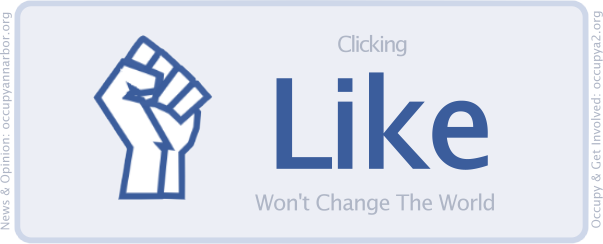Does it seem to you like even three months later, those pesky occupiers are everywhere?
Perhaps because sometimes, they are. And while the movement has scattered for the time being as frosty weather sets in to much of the northern United States, its adherents are following Occupy sects across the web, sharing information and organizing action. One gathering spot that’s remained popular for Occupy sympathizers is Facebook, and it is rumored that the movement is planning its own version of the popular social network.
Social networks catering to certain subsets of society are nothing new- while Facebook started as a college-based network, the site has morphed to include basically everyone you know. There’s Edmodo for teachers and students, LinkedIn for the career conscious and even FetLife for the adult-centric set- and now it seems the Occupy movement is planning its own version of Facebook, although they stress it isn’t their own Facebook, but kind of is. Wired quotes Ed Knutson of the Occupy development team, who explains:
“I don’t want to say we’re making our own Facebook. But, we’re making our own Facebook.”
According to those working to develop the networks, concerns about security and surveillance on mainstream networks like Facebook and Twitter are major driving forces behind the move to occupy off Facebook. Wired explains:
One challenge that all of the new efforts face is a very difficult one for non-centralized services: ensuring that members are trustworthy. That’s critical for activists who risk injury and arrest in all countries and even death in some. To build trust, local and international networks will use a friend-of-a-friend model…
“You have to know someone in real life who sponsors you,” said Knutson.
Does that sound a bit alarmist to you? The site also points out that Twitter was subpoenaed last week to release information about the @OccupyBoston movement. Secrecy and protected coordination isn’t the only aim of the project, however- the goal is also to clarify a message that is oftentimes distorted by cacophonous discussion on less movement-centric networks.
Would you avail yourself of a more centralized information network for protests if one was available?
[Image: Occupy Ann Arbor]



